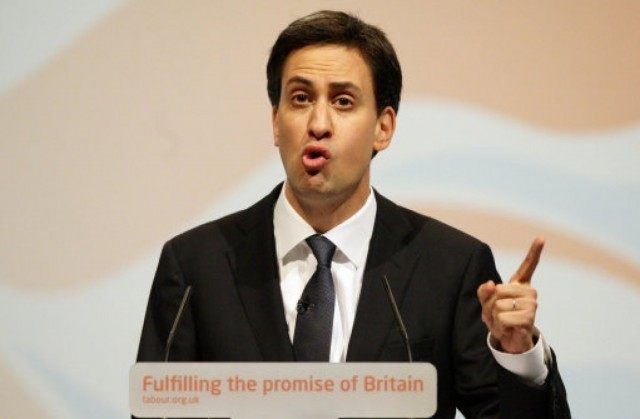Tuesday night saw the premiere of the latest British party political broadcast filmed by established Hollywood talent. Ed Miliband – A Portrait , described by the Guardian film critic as “a rather generic piece of journeyman work for Paul Greengrass”, shared all that is important to the leader of the Labour Party.
As well as speaking at length about the influence of Ralph Miliband, his Marxist academic father, Ed used the short Greengrass-directed film to announce he is “ready to offer [himself] as prime minister”.
Greengrass follows a distinguished line of British film directors involving themselves in British elections, in his case perhaps unsurprisingly as he started his directorial career on the British television current affairs programme World In Action.
In an interview to promote United 93, his film about the fourth plane hijacked on 9/11, he spoke of this early stage in his career saying “I’d spent a lot of time in my 20s going to places where bad stuff happens – bloodshed and conflict. It kind of marks you.”
Margaret Thatcher allegedly called the show “just a lot of Trotskyists.” Not entirely contradicting her, Greengrass expanded on the point when giving the prestigious British Academy of Film and Television Arts David Lean Lecture in 2014 describing World In Action as:
“…an eclectic mix of investigative reporting, documentary film making, left wing politics, popular culture, being rude to Mrs. Thatcher, being rude to Mrs. Thatcher again, being rude to MI5, being rude to Mrs. Thatcher again at any and every opportunity, and expenses diddling…it was where I learned about the world, the world of the 1980s. The Troubles, the miners’ strikes, Reagan and Thatcher, Central America, The Falklands War, Apartheid in South Africa. Strike, war, revolution and famine. This is where I learned how the world worked and how, who has the power and who doesn’t have the power and how the two are always in tension and how the world always is in action.”
Greengrass has never been a film-maker known to shy away from his political leanings although “Green Zone”, his film set during the Iraq War, was described in The New Yorker as “a left-wing movie that looks and sounds like a right-wing one.”
When comparing his Jason Bourne to James Bond he described the latter as “an Imperialist right-wing f**kface.” In contrast to Greengrass, Matthew Vaughn, director of “Kick-Ass”, “X-Men: First Class” and “Kingsman: The Secret Service”, has been involved with the Conservative Party in recent years.
In 1987 Hugh Hudson, the Oscar winning director of Chariots of Fire, was commissioned by Peter Mandelson to film the broadcast which became known as “Kinnock – The Movie” for the then Labour Party leader. Mandelson said the purpose of the film was to raise Neil Kinnock’s “stock as a new kind of leader and, in effect, to camouflage most of the policy prospectus on which we were asking voters to put him into Downing Street”.
In one sense that film worked. Kinnock’s personal ratings were boosted by 19 points. In another sense it was a failure. Although Kinnock’s Labour Party did gain 20 seats in that election, Margaret Thatcher returned to office with a third general election victory and a Conservative Party majority of 102.
In 1992 fellow Oscar winner John Schleshinger, director of Midnight Cowboy and Marathon Man, attempted to better Hudson’s 1987 effort with his own film made in support of then Conservative Party leader and incumbent Prime Minister, John Major. Contradicting opinion polls during the election campaign and even exit polls on the night of the general election itself, the Conservative Party won that general election taking over 14 million votes, more than any British party has ever done before or since.
Ed Miliband and Paul Greengrass will be hoping that come election night in May they are more Major/Schleshinger than Kinnock/Hudson.

COMMENTS
Please let us know if you're having issues with commenting.